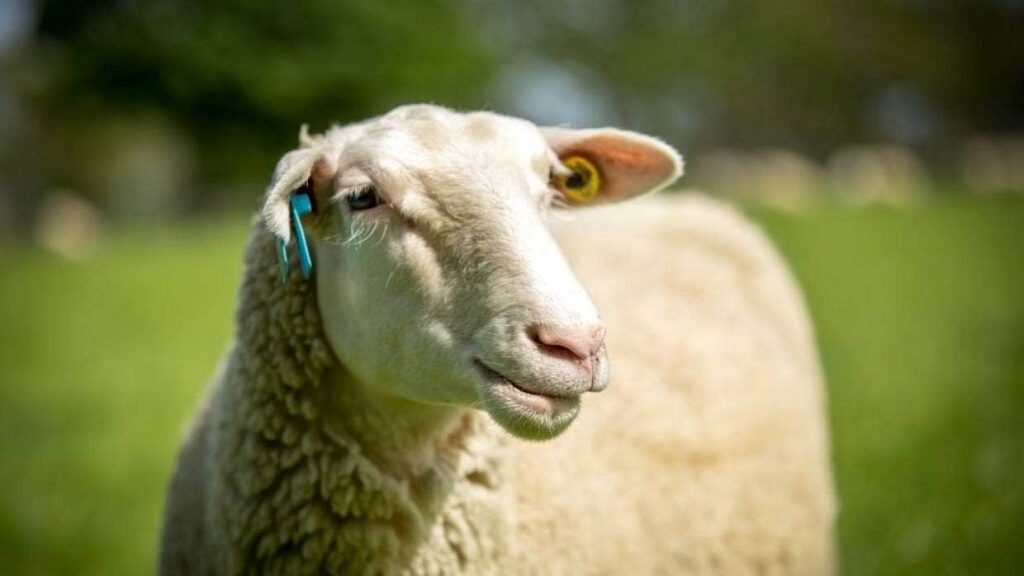
The sheep milk company, which is a joint venture between state-owned farmer Landcorp (Pāmu) and food marketer SLC Ventures, won the award for its gentle sheep toddler milk drink, which is a fortified nutritional supplement for one-to-three-year-olds.
The other finalists in the category were Wyeth Nutrition, which is owned by the world’s largest food company Nestle, and China Feihe, the dominant infant formula company in China. The awards attracted 222 entries from 25 countries across 20 categories.
Spring Sheep started with one farm in 2015 and is now the largest sheep milking group in the Southern Hemisphere with 16 farmer suppliers and 15,024 of its special Zealandia milking sheep. The venture is scaling up its operations, and expects to expand to more than 40,000 sheep by 2025.
Spring Sheep Milk chief executive Scottie Chapman said the win is a big deal for the company.
“These other big brands have been there for a long time,” he said. “For a high-growth, emerging Kiwi company to be awarded this against such big and established competition is huge for us.”
SIMON O’CONNOR/STUFF
Students at Waitara High School are milking sheep as part of their schooling. (first published in 2019)
Chapman said Spring Sheep was forgoing short-term profits to reinvest to grow the business, gain market share and create a sheep milking industry that was sustainable over the longer term.
“If you think about dairy farming in New Zealand, in many ways it’s considered a bit of a sunset industry because it doesn’t have a good reputation at the moment and it’s just a hard industry to be in and people are feeling a little bit beaten up,” he said.
“Sheep milking is a sunrise industry. If in sensitive waterways or land you found sheep instead of cows, I think it would be good for both us and for New Zealand as a whole.”
Globally, sheep milk production is increasing, but is minute compared to cow’s milk, accounting for just 1.3 per cent of the world’s milk production, according to 2019 figures from the Food and Agriculture Organisation of the United Nations.
For big players like Fonterra, the small scale of the sheep milk industry in New Zealand puts it out of contention for investment.
“Do I see a consumer opportunity in sheep milk? Absolutely,” said Fonterra chief executive Miles Hurrell. “I think there are markets for that, but in our context I’m just not quite convinced.
“When you put it in the context of the size and scale of our business it would be a potential distraction,” he said.
Spring Sheep was not targeting to grow to a specific size of the dairy industry, but believed growth would occur naturally through its environmental, animal welfare and consumer advantages, Chapman said.
Sheep milk is perceived as less allergenic and easier to tolerate than cow milk, and is richer in nutrients than cow, goat and plant-based milk.
For state-owned company Pāmu, the initial investment in Spring Sheep was part of a wider strategic drive into non-traditional areas of agriculture, fulfilling its role as a “test bed” for different types of agriculture.
The country’s largest farmer is looking to higher value innovative products such as sheep and deer milk for growth and is converting many of its farms to organic, making it the country’s largest organic dairy supplier.
“We recognise that we have the size and scale to try things that smaller farmers cannot, and our support for sheep milking was part of helping create a new pathway and potential diversification option for farmers,” said Pāmu spokesman Simon King. “It has been very successful.”
A key part of Pāmu’s strategic direction out to 2030 is to make speciality milks a significant revenue earner for the company.
“This will come from sheep milk and deer milk but also from organic and A2 milks,” King said.
Pāmu has converted one of its central plateau farms to organic with another three in the conversion process. Eventually it plans to expand to eight fully organic farms.
“This is a growing part of our business, as global consumer demand for speciality milk continues to grow, which Spring Sheep is benefiting from,” King said.
Similarly, Pāmu’s investment in the Melody Dairies specialist spray drying facility at the Innovation Waikato Park in Hamilton has added extra capacity for speciality milk production.
The industrial spray drying facility converts liquid milk into a dried form, and has a 1.2 metric tonne per hour drying capacity. Pāmu invested $11m for a 35 per cent stake in the facility, which is used by Spring Sheep.
FRANK FILM
New Zealand has rare and ancient animal breeds which aren’t native, but are introduced. Do they deserve protection, too?
Since Spring Sheep started, it has been growing its milk volume by about 70 per cent every year. Its sheep produce an average 385 litres each, with the top performers producing 645 litres.
Some 90 per cent of the company’s products are exported to markets across Taiwan, Malaysia, Vietnam and Hong Kong, with the biggest demand coming from China. Last year, Spring Sheep launched a flagship store on Tmall Global, which is the largest online cross border e-commerce sales platform in China.
Globally, the premium alternative dairy category is growing at about 20 per cent a year, fuelled by health and wellness trends. The sheep and goat early life nutrition category is experiencing strong growth with sales expected to reach $15 billion by 2023. Spring Sheep’s sales are growing 60 per cent a year.
A report into the opportunity for New Zealand sheep milk products, published last year, said local exports were worth about $20m, and accounted for just 0.01 per cent of the world’s production.
Relative to bovine milk products, the market for sheep milk products was small and undeveloped, indicating significant potential for growth, the report said. Sheep milk products attracted a premium over their cow milk equivalents, it said.
“Although there is scope to increase milk volumes as the sector expands, New Zealand cannot expect to compete on scale as competition increases,” the report said. “The focus must be on how it can maximise as much value from the relatively small volumes of milk it produces.”
The sector’s economic contribution could reach $250m in 2024 through expansion into high value products like infant formula, the report said.
“Infant formula and nutritional powders offer the best opportunities for New Zealand sheep milk,” the report said. “This is based on projected growth, profit potential, the low level of competition and New Zealand’s strength as a producer of high-quality milk powders.”
Spring Sheep’s biggest selling product is its full cream milk powder but over the last couple of years it’s been developing products for early life nutrition. Its winning gentle sheep toddler milk drink was launched in Malaysia two years ago and has been available in New Zealand since April. It’s also sold through its cross border e-commerce channels into China.
The company has noticed increasing interest in sheep milking in New Zealand.
At its first farm open day six years ago about 40 people turned up, who were mostly just curious and a bit bemused. But at the latest farm open day they had well over 500 visitors, and now have a solid pipeline of farmers wanting to get involved.























